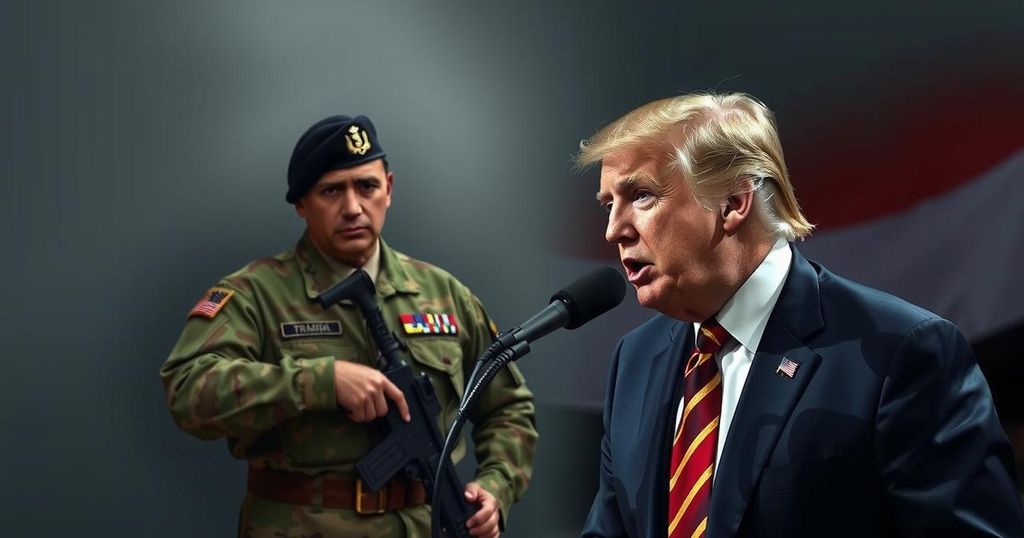Trump Advocates For Withdrawal of Troops from Northern Syria

Donald Trump aims to withdraw U.S. troops from northern Syria, citing the risk of their becoming “cannon fodder” in conflicts between Turkey and Kurdish fighters. Robert F. Kennedy Jr. discussed Trump’s concerns regarding troop safety and potential shifts in U.S. foreign policy following his re-election, indicating significant changes in military strategy are anticipated.
Robert F. Kennedy Jr. recently conveyed that President Donald Trump harbors intentions to withdraw United States troops from northern Syria, describing the alternative as leaving them as “cannon fodder” amidst potential hostilities between Turkey and Kurdish forces. During a conversation with Tucker Carlson, Kennedy recounted Trump’s depiction of the Middle East and concerns regarding U.S. troop positioning at the Syrian-Turkish border. Trump emphasized the notion that U.S. troops could become easily endangered if conflict were to arise, prompting Kennedy to affirm, “Get them out!” Trump’s re-election has raised fears among Western allies concerning impending shifts in U.S. foreign policy, particularly regarding its military presence in the region.
The context surrounding Trump’s proposal stems from the complex dynamics in northern Syria, where the Syrian Democratic Forces (SDF), with support from the U.S., have been engaged in combating the Islamic State group. This collaboration has been contentious, especially since Turkey views the Kurdish People’s Protection Units (YPG), a primary component of the SDF, as an extension of the Kurdish Workers’ Party (PKK), a designated terrorist organization in Turkey. Following the 2014 emergence of ISIS, the U.S. has maintained a military footprint in Syria, aiming to counter regional threats, including Iran. As geopolitical relations evolve, Trump’s intent to withdraw troops could signify a significant policy overhaul.
In summary, Donald Trump’s expressed desire to withdraw U.S. troops from northern Syria reflects his intention to prevent potential casualties amidst escalating tensions between Turkish and Kurdish forces. This proposal coincides with broader implications for U.S. foreign policy, particularly in the context of its military engagements and support for regional allies in the Middle East. Therefore, Trump’s approach may herald substantial changes to America’s strategic positioning in the region.
Original Source: www.middleeasteye.net








